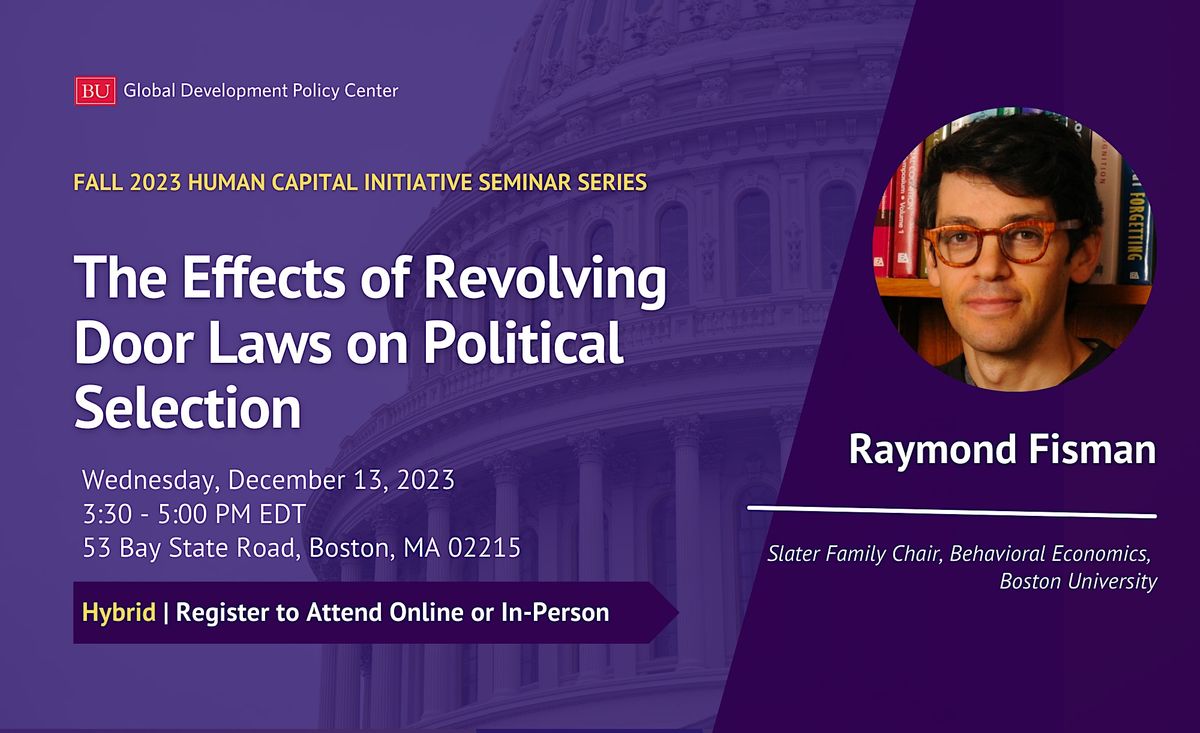
About this Event
Public servants worldwide face legal restrictions, to varying degrees, on their ability to leave the public sector to represent private interests for personal gain before the government in which they served. So-called “revolving door laws” often involve constraints on how a former official may interact with government (e.g., whether they can interact with the department or ministry in which they served) and a cooling off period of months or years.
Yet, as with most policies, revolving door restrictions involve tradeoffs. And whereas much of the public discourse, as well as academic research, on revolving door laws has focused on post-office behaviors, these rules may also affect selection into and out of government. For example, restrictions on post-office employment may reduce the pool of candidates for public positions, by reducing the benefits of holding office and may also change the composition of candidates. Additionally, revolving door laws may encourage officials to stay in office longer, by postponing the benefits of departure, which can have ambiguous consequences.
In a recent study, Raymond Fisman, Core Faculty Member of the Human Capital Initiative at the Boston University Global Development Policy Center, and coauthors examine the consequences for entry and exit from state-level politics in the United States. Their preliminary analyses exploit the staggered introduction of revolving door rules across US states to assess how revolving door laws effect political selection. Their findings suggest that such laws lead to less candidates choosing to stand for state-level office, and to more uncontested elections, in particular. They also describe work-in-progress that further aims to assess whether revolving door restrictions shift the composition of candidates who choose to run for election and those who are actually elected.
On Wednesday, December 13, 3:30-5:00 PM EST, join Raymond Fisman for a hybrid research seminar on revolving door laws and their consequences on state-level political selection in the US.
This seminar is part of the Fall 2023 Human Capital Initiative Research Seminar Series. Light refreshments will be provided at the event.
Event Venue & Nearby Stays
Boston University Global Development Policy Center, 53 Bay State Road, Boston, United States
USD 0.00
